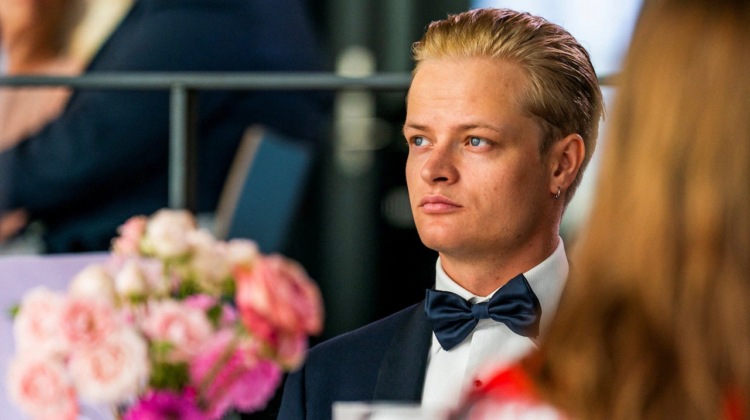
[Want even more content from FPM? Sign up for FPM+ to unlock exclusive series, virtual town-halls with our authors, and more—now for just $3.99/month. Click here to sign up.]
Norway has one of the oldest royal houses in Europe or one of the youngest, depending on how you choose to figure these things. From Harald I Halfdansson, who acceded to the throne in the year 872, to Haakon V Magnusson, whose reign ended in 1319, there was a pretty much unbroken line of monarchs who ruled over Norway and Norway alone. There followed several centuries during which Norway was ruled mostly from Stockholm or from Copenhagen. Then, for a little over a century, Norway, Sweden, and Denmark were united in something called the Kalmar Union. From 1537 to 1814 Norway was the junior partner in a royal union with Denmark, after which it became the junior partner in a royal union with Sweden. Not until that ended in 1905 did Norway once again have a king all its own – Haakon VII, a Danish prince who was chosen by the Norwegian parliament to become the nation’s sovereign, even though he couldn’t speak the language. His son, Olav V, born in England (his mother was Welsh) a couple of years before his father’s ascent to the throne, reigned from 1957 to 1991, and was known as the People’s King, largely because of a staged photograph in which he was shown riding an Oslo tram. The current king, the third in the line and the first in the current ruling house (the House of Glücksberg) to actually be born in Norway, is Harald V, now 88, who in his younger days enjoyed sailing.
Why did the Norwegian parliament choose in 1905 to opt for a monarchy rather than a republic? Probably because Sweden and Denmark were monarchies, and Norway doesn’t like to deviate much from its Scandinavian siblings. In any event, while they opted for a constitutional monarchy rather than one with any real power, they established an institution that during the Nazi occupation provided at least a soupçon of inspiration (see the 2016 movie The King’s Choice – the choice being to withdraw to London for the duration rather than become a puppet of Hitler) and, in recent years, has provided considerable diversion, not always on purpose. On Christmas Eve 1999-2000, for example, Harald, who is not the most scintillating of public speakers, delivered a typically platitudinous address to the massive crowd outside Oslo City Hall (I was there), and, not surprisingly, droned on till past midnight, delaying the cheers for the arrival of the New Year by several minutes.
A year later Harald’s son, the nerdy Crown Prince Haakon, married a sizzling hot blonde named Mette-Marit, who before the wedding was pressured by the Palace to hold a press conference at which she confessed that she’d lived a “wild” life – as testified to by the existence of her young son, Marius, whose father, to whom she had not been married, was a convicted felon. At the royal wedding, the fatuous Archbishop of Oslo devoted his homily largely to the fact that the bride was a reformed jezebel, that the wonderfully virtuous prince had graciously forgiven her, and that “love had triumphed.” Haakon and Mette-Marit now have two children together, the elder of whom, Princess Ingrid Alexandra, will one day be queen, should this racket still be in business when her time comes.
Haakon’s and Mette-Marit’s isn’t the only love story in the current royal family. Haakon’s sister, the flaky Märtha Louise, has been married twice: first to a pathetically lame novelist named Ari Behn, whom I used to see hanging out in gay bars and who after their divorce committed suicide on Christmas Day 2019. Märtha’s fascination with holistic medicine and spirituality (for a while she ran a school where she taught students to “harness the powers of their angels”) led her to Derek Verrett, a bisexual black shaman from L.A. who became her second husband – and who, in his 2019 book Spirit Hacking: Shamanic Keys to Reclaim Your Personal Power, Transform Yourself, and Light Up the World, wrote that cancer is self-inflicted but that, for a price, Verrett can cure you of it.
You might think that all this was more than enough scandal for a single royal family, especially one that rules over a small, sleepy Scandinavian kingdom. But on August 18 the Norwegian public was treated to the topper of all toppers: in a press conference broadcast live across the country, the Oslo public prosecutor, Sturla Henriksbø, announced that Marius Borg Høiby, the son whom Crown Princess Mette-Marit had out of wedlock with the aforementioned felon, and who has grown into a very handsome but apparently feckless young man, was being charged with no fewer than 32 offenses, including four rapes, abuse of his former girlfriend, and several acts of violence. Henriksbø described the charges in surprisingly lurid detail. My first reaction was that this, aside from shocking the old women and housewives who make up most of the daytime TV audience, would prejudice potential jury members; then I remembered that they don’t have juries in Norway – these matters are decided by panels of judges.
So it was that Henriksbø explained, on live midday TV, that at Skaugum, the Crown Prince’s official residence, Høiby is supposed to have videotaped and fingered a naked woman who was sleeping it off after a party in 2018; that in 2023, in Lofoten, Høiby had consensual intercourse with another woman but had sex with her again – and videotaped it – after she fell asleep. The third and fourth incidents, which took place in Oslo last year, sounded like reruns of the second. All together, Høiby is being accused of having committed sexual offenses against 16 different women, and apparently police have found on Høiby’s cell phones and computers a cornucopia of films and photographs that would seem to confirm his guilt. Should he be found culpable of any or all of the major transgressions of which he’s been accused, he could end up doing ten years in the hoosegow (although even the worst hoosegow in Norway is comparable to a three-star hotel).
Henriksbø emphasized at his press conference that in Norway everyone is equal before the law and that Høiby’s membership in the royal family doesn’t accord him any special privileges. In point of fact Høiby isn’t really a royal: at the time that his mother wed the Crown Prince, it was made clear that while he would grow up with the royals, he would not be officially viewed as belonging to the royal household. Still, the line between royal and non-royal, in Høiby’s case, has been hazy ever since. A while back, when the Norwegian media started reporting on unsavory accusations against Høiby, it emerged that he’s traveled abroad on a diplomatic passport. Of course he is not remotely a diplomat: after spending less than a year at Santa Monica College, he worked briefly as a motorcycle mechanic; otherwise, he seems to be a full-time lothario. Perhaps the folks at the Foreign Ministry granted him the passport because they were aware of his predilection for trouble and wanted an easy way to bring him back home should he get into trouble on foreign soil.
So no, Høiby isn’t technically a royal. But one of these days he’ll be the son of the queen. And he’ll very likely be behind bars. The whole scummy business, needless to say, brings to mind the repulsivee case of Prince Andrew – just as Märthe and Durek’s nutty preoccupations remind one of King Charles’s many eccentricities (the most harmless of them being that he talks to houseplants). In the wake of the death of Queen Elizabeth, who always kept her nose clean and always tried her best to be a symbol of national unity, national values, and national tradition, the failure of the current batch of European royals, in Britain, Norway, and elsewhere, to stand for anything of value calls into question the continuing existence of every one of these monarchies, in which the men who sit on the thrones (they’re all men now, after the relatively recent abdications of Beatrix in the Netherlands and Margrethe in Denmark) routinely gush over Islam, stay silent about the horrible damage that the Religion of Peace is actually doing to their ancient realms, and preside over families whose members seem to think that living in a royal palace, far from representing an obligation to serve the people in some way or other, is instead a license to do pretty much any damn thing you want.















